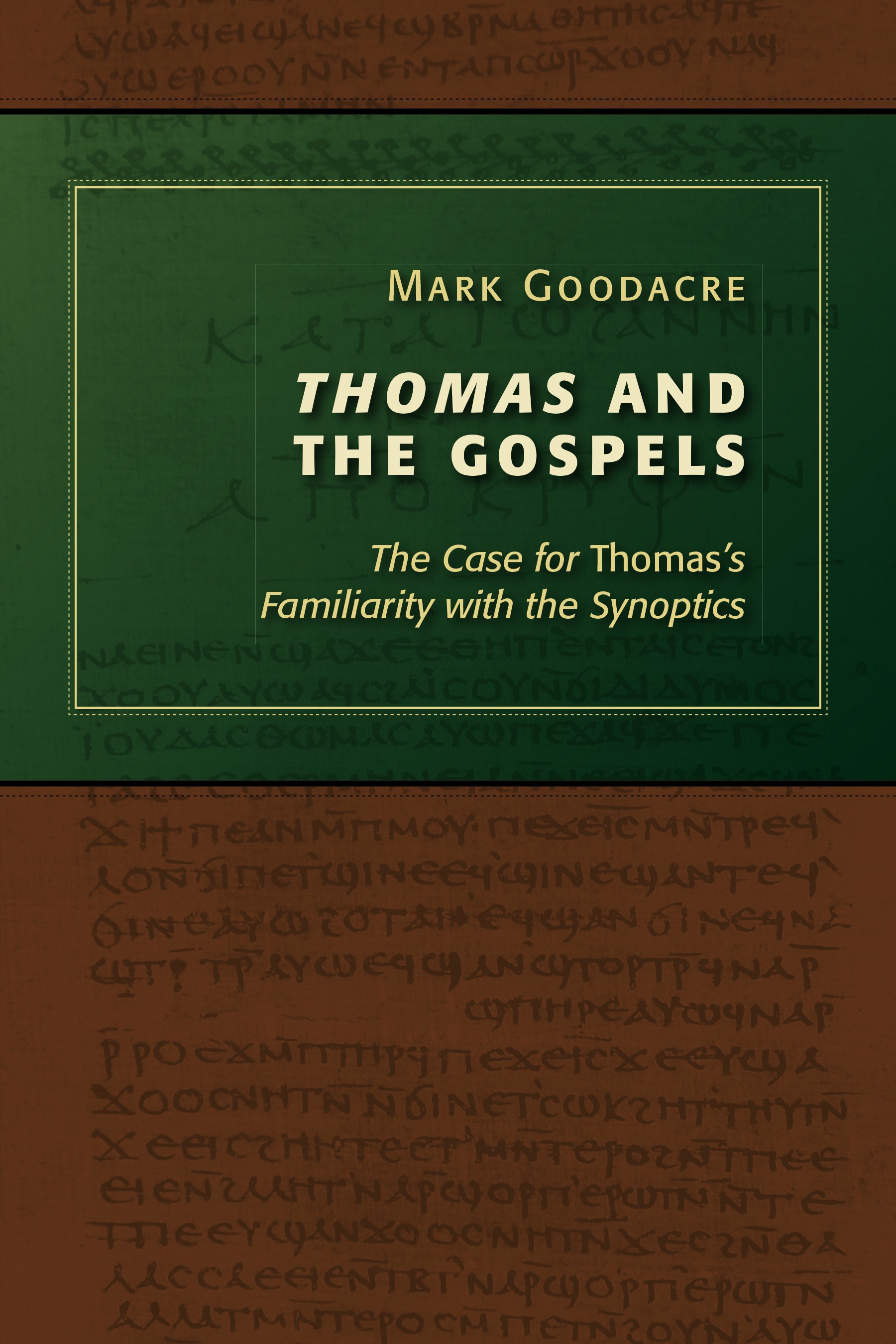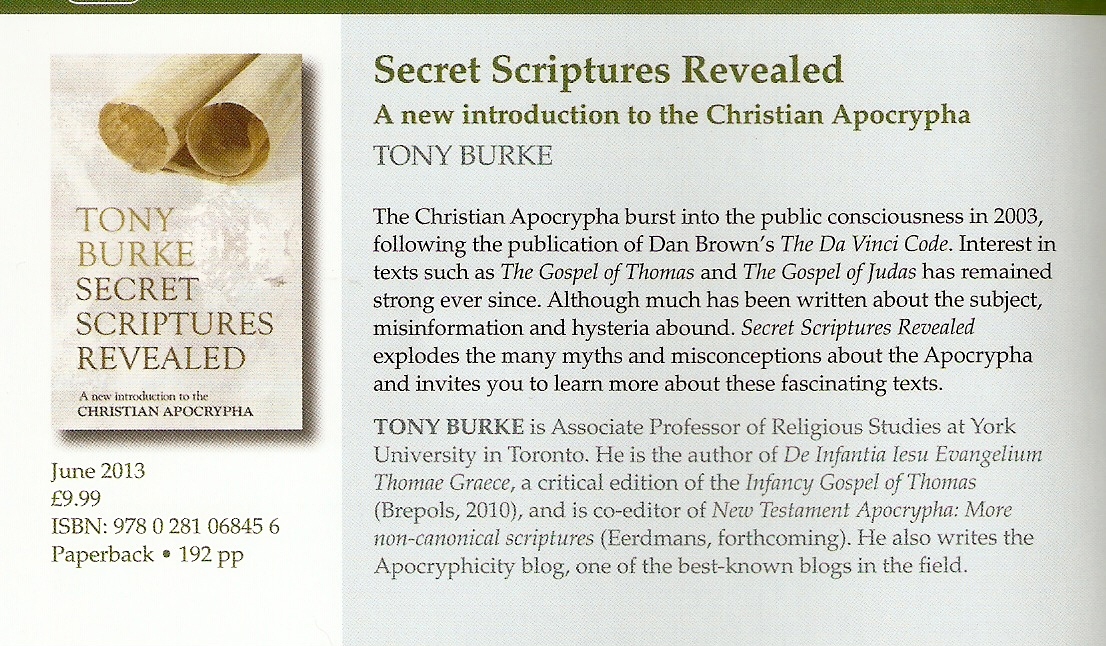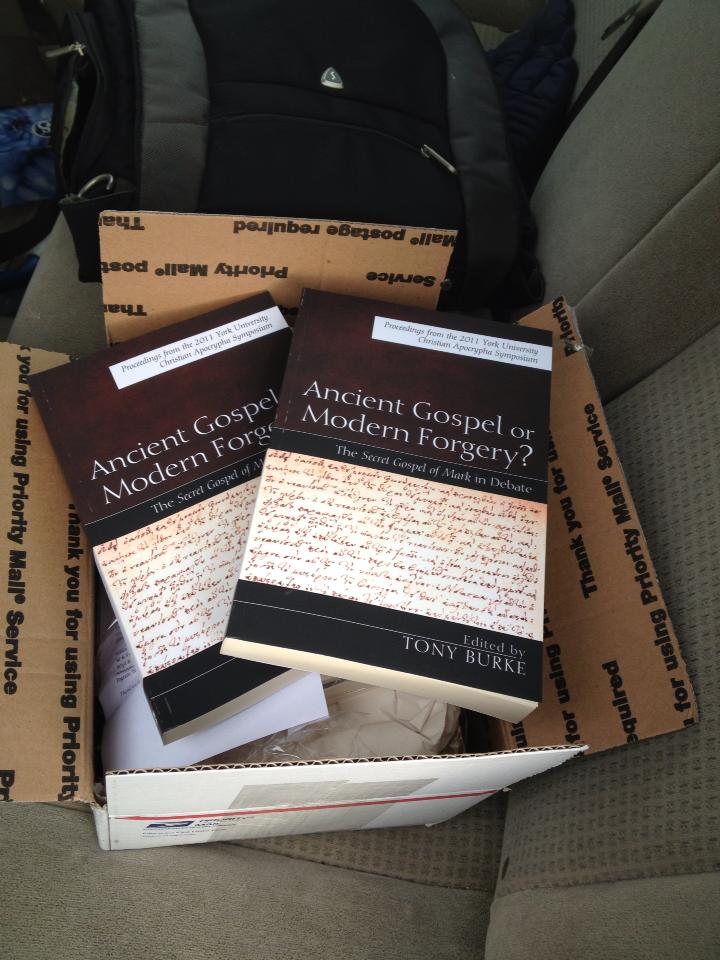Philip Jenkins on Christian Apocrypha in Medieval Britain
Philip Jenkins, author of (among other things) Hidden Gospels:How the Search for Jesus Lost Its Way (Oxford 2001), has contributed a post to the patheos blog entitled "The First English Bible." The title is somewhat misleading; Jenkins discusses the apocryphal texts circulating in Anglo-Saxon England and Ireland in medieval times, but it is a stretch to consider these texts part of the "English Bible." Certainly canonical and non-canonical texts were both valued and used but not in a single collection and not without a sense that some texts are more valued, more authoritative than others.



 The book has received some glowing endorsements. John Kloppenborg says of it, "Ancient Gospel or Modern Forgery? brings together most of the key supporters and detractors of the authenticity of the Secret Gospel of Mark in a balanced, probing, and illuminating book…Although this book, carefully crafted by Burke, cannot be said to have brought closure on the issue, it has laid to rest many of the specious and illogical claims that have littered the discussion until now. We can only hope that the ground has now been cleared for a more balanced and scientific discussion of the Mar Saba manuscript." And Bart Ehrman says, "The debate over the Secret Gospel of Mark rages on. Did Morton Smith discover this text, or did he forge it? This terrific collection of essays presents leading voices from both sides of the controversy, stating their views, marshaling the evidence, and allowing readers to pass their own verdicts."
The book has received some glowing endorsements. John Kloppenborg says of it, "Ancient Gospel or Modern Forgery? brings together most of the key supporters and detractors of the authenticity of the Secret Gospel of Mark in a balanced, probing, and illuminating book…Although this book, carefully crafted by Burke, cannot be said to have brought closure on the issue, it has laid to rest many of the specious and illogical claims that have littered the discussion until now. We can only hope that the ground has now been cleared for a more balanced and scientific discussion of the Mar Saba manuscript." And Bart Ehrman says, "The debate over the Secret Gospel of Mark rages on. Did Morton Smith discover this text, or did he forge it? This terrific collection of essays presents leading voices from both sides of the controversy, stating their views, marshaling the evidence, and allowing readers to pass their own verdicts."